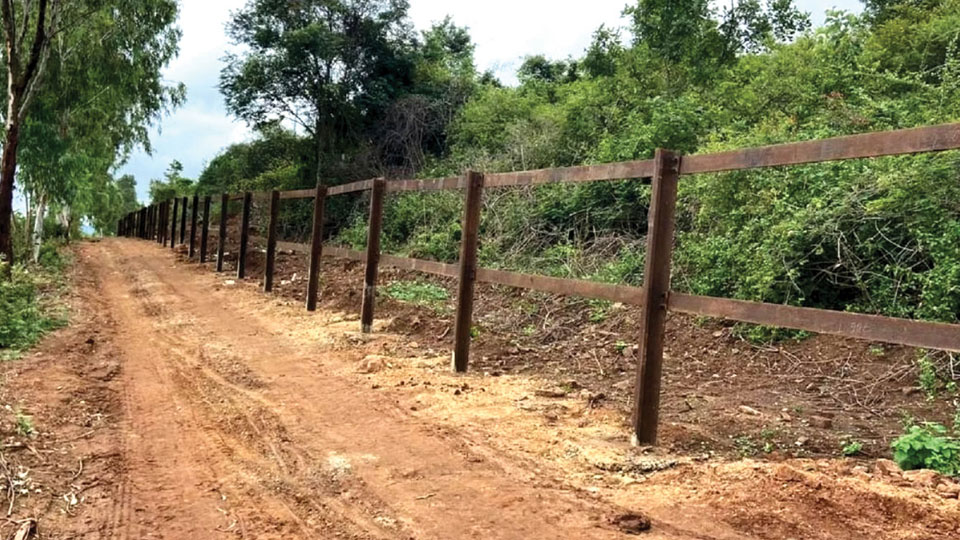Belagavi: At the ongoing Legislature Session in Belagavi, Forest Minister Eshwar B. Khandre revealed that the installation of railway barricades, costing Rs. 200 crore, is underway to prevent man-elephant conflicts.
Responding to a query during the Question Hour by K. Harish Kumar, the Minister stated that 640-km of railway barricades are being installed, with 312-km already completed.
Khandre said that 40 people have died in elephant attacks in Dakshina Kannada, Kodagu, Chikkamagalur and Hassan districts. 18 people have died in such attacks in Kodagu since 2020. 14 people have died in Hassan since 2020, 5 in Chikkamagalur since 2021 and 3 in Dakshina Kannada in 2022-23.
Addressing the issue of compensation for crop damage by elephants, Minister Khandre noted that 90 percent of cases have been compensated. He assured that additional compensation would be provided in case of loss of life. Warning boards about the presence of wild elephants have been installed along National Highways passing close to forests in the State.
To address the elephant menace, the Minister mentioned the formation of Elephant Task Forces in districts like Hassan, Kodagu, Chikkamagalur, Mysuru, and Chamarajanagar. Lakes are also being constructed in Reserve Forests to increase water availability within forest areas, preventing wild elephants and other animals from venturing out in search of water.
Lantana growth
BJP MLC Tejaswini Gowda said that around 40 percent of the Bandipur Tiger Reserve area is now covered with weeds. It is approximately 30 percent in Nagarahole Tiger Reserve and about 20 percent at Bannerghatta National Park.
In his reply, the Minister informed that lantana, sennaspectabilis, chromolaenaodorata, mikaniamicrantha and parthenium are the major weeds in the reserve forest. In those areas, where density of lantana, mikaniamicrantha and sennaspectabilis are high, wild animal’s movement are affected, he informed.
He emphasised efforts to control the overgrowth of weeds, hindering grass growth, the main fodder source for herbivores. Initiatives include removing lantana and eupatorium in areas where grass is grown, installing solar fences, digging elephant trenches and implementing railway barricades to prevent elephants from leaving forests.
Teams have been formed to drive wild elephants back into forests and an information centre operates round the clock to collect data about wild elephants. The Minister highlighted the radio collaring of senior female elephants for tracking and information dissemination through SMS and WhatsApp.
Identifying and relocating rogue elephants is also part of the strategy, accompanied by public awareness campaigns through organised meetings in areas facing heightened elephant menace.








Recent Comments